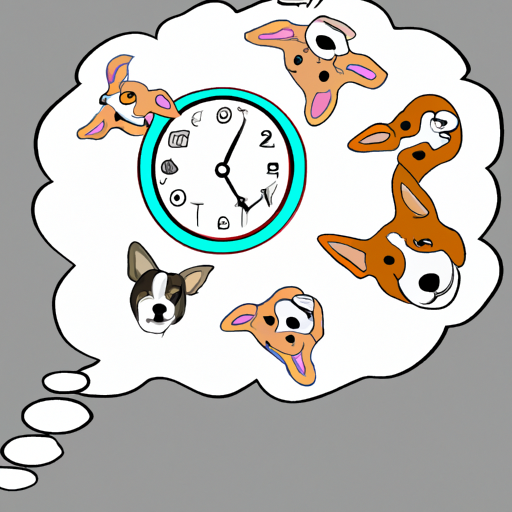Understanding Your Dog’s Sleep Pattern
Much like us humans, the sleep pattern of your dog can be influenced by various factors. These include their age, breed, diet, and overall health. Most dogs sleep for about 12 to 14 hours per day, but puppies and older dogs might sleep even more.
Just like you would count sheep, your furry friend likely has his own set of dream-inducing triggers. Dogs enter a deep sleep stage when their breathing slows down, they become less responsive to external stimuli, and they start dreaming. It’s during this stage that you might observe some really adorable or bizarre behavior, like running in place or whimpering.
How Age and Size Affect Your Dog’s Sleep
The age and size of your dog play an essential part in determining how much sleep they need:
-
Puppies: Just like human babies, puppies need a lot of sleep – up to 20 hours a day. This is because they are growing and developing rapidly, both physically and mentally.
-
Adult Dogs: While the breed and size of the dog can influence sleep duration, most adult dogs sleep around 12 to 14 hours a day.
-
Older Dogs: As dogs age, they tend to need more sleep due to their declining energy levels and health.
| Age Group | Average Sleep Duration |
|---|---|
| Puppies | Up to 20 hours |
| Adult Dogs | 12 to 14 hours |
| Older Dogs | Up to 18 hours |
Factors That Influence Your Dog’s Sleep
Several factors can influence how much sleep your dog needs:
-
Physical Activity: Dogs that are more active during the day will typically require more sleep. This is because sleep allows their bodies to recover from physical exertion.
-
Diet: A healthy, balanced diet can help regulate your dog’s sleep patterns. Foods that are high in sugar or caffeine can disrupt your dog’s sleep.
-
Health: Illnesses and certain medications can cause your dog to sleep more than usual. If you notice a sudden change in your dog’s sleep patterns, it’s best to consult a vet.
How to Ensure Your Dog Gets Enough Sleep
As a caregiver, you want to make sure your dog is getting the right amount of sleep. Here are some tips:
-
Maintain a routine: Dogs thrive on routine. Try to keep a consistent schedule for feeding, exercise, and bedtime.
-
Create a comfortable sleeping environment: Make sure your dog has a quiet, comfortable place to sleep. This can be a dog bed, a crate, or even a designated spot on your bed.
-
Monitor your dog’s sleep patterns: Keep an eye on how much your dog is sleeping. If you notice any sudden changes, it might be time to consult a vet.
FAQ
Q: My dog seems to sleep all day. Should I be worried?
A: Dogs typically sleep for 12-14 hours a day. However, if your dog’s sleep pattern changes suddenly or they seem excessively tired, it’s always a good idea to consult a vet.
Q: Is it normal for dogs to twitch or move in their sleep?
A: Yes, it is normal for dogs to twitch, move, or even bark in their sleep. This is often a sign that they are dreaming.
Q: Can I change my dog’s sleep schedule?
A: Yes, you can gradually adjust your dog’s sleep schedule. However, sudden changes can be stressful for your dog. Always try to maintain a consistent routine.
Q: Can dogs have insomnia or other sleep disorders?
A: Yes, dogs can suffer from sleep disorders like insomnia, sleep apnea, or narcolepsy. If you suspect your dog has a sleep disorder, consult a vet.



